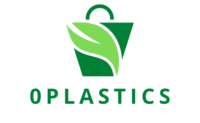Yes, there are cost-effective alternatives for both businesses and consumers that can replace traditional plastics. These alternatives offer sustainability benefits without significantly impacting the budget. Here are some examples:
1. Reusable Products:
- Bags: Reusable shopping bags made from fabric, jute, or recycled materials are cost-effective options for consumers. Many businesses offer these bags for sale at low prices or as promotional items, making them accessible to consumers.
- Bottles and Containers: Reusable water bottles and food containers made from stainless steel, glass, or durable plastics are a cost-effective choice for consumers. They reduce the need for single-use plastic bottles and disposable containers.

2. Bulk Shopping:
- Buying in bulk reduces packaging waste and often comes at a lower unit cost. Consumers can bring their own reusable containers to stores that offer bulk bin sections for products like grains, nuts, and spices.
3. Cloth Diapers:
- Cloth diapers, although requiring an initial investment, are cost-effective over the long term. They can be reused for multiple children and significantly reduce the ongoing expense of disposable diapers.
4. Refill Stations:
- Some businesses, especially in the cleaning and personal care industries, provide refill stations where consumers can bring their containers to be refilled with products like detergents, shampoos, and soaps, often at a lower cost per unit.
5. Second-Hand and Thrift Stores:
- Purchasing second-hand or thrifted items, including clothing, furniture, and electronics, can be a budget-friendly and sustainable option for consumers.
6. DIY and Homemade Products:
- Making homemade cleaning products, cosmetics, and food items can significantly reduce packaging waste and save money. Consumers can repurpose common household items to create DIY alternatives.
7. Sustainable Alternatives for Businesses:
- Businesses can adopt cost-effective sustainable packaging options, such as using paper bags, cardboard boxes, or minimal packaging for their products. These choices can be competitively priced.
- Utilizing recycled materials for packaging is an economical and eco-friendly strategy for companies looking to reduce their environmental footprint.
- Sustainable procurement practices, such as buying in bulk or sourcing products locally, can lead to cost savings for businesses while promoting sustainability.
8. Eco-Friendly Office Supplies:
- Businesses can switch to eco-friendly office supplies like recycled paper, biodegradable pens, and refillable ink cartridges, which are often competitively priced compared to traditional office supplies.

9. Energy Efficiency:
- Reducing energy consumption in business operations through energy-efficient appliances, lighting, and practices can lead to significant cost savings while benefiting the environment.
10. Transportation Alternatives:
- Promoting public transportation, carpooling, or cycling options for employees can reduce fuel costs, lower carbon emissions, and contribute to sustainability goals.
11. Digitalization:
- Reducing paper usage by adopting digital document management and communication systems can save businesses money on printing and storage costs.
In summary, cost-effective alternatives exist for businesses and consumers looking to reduce their reliance on traditional plastics and adopt more sustainable practices. Many of these alternatives not only save money in the long run but also contribute to environmental conservation and waste reduction. By making informed choices and embracing eco-friendly options, both businesses and consumers can align their economic interests with their sustainability goals.
